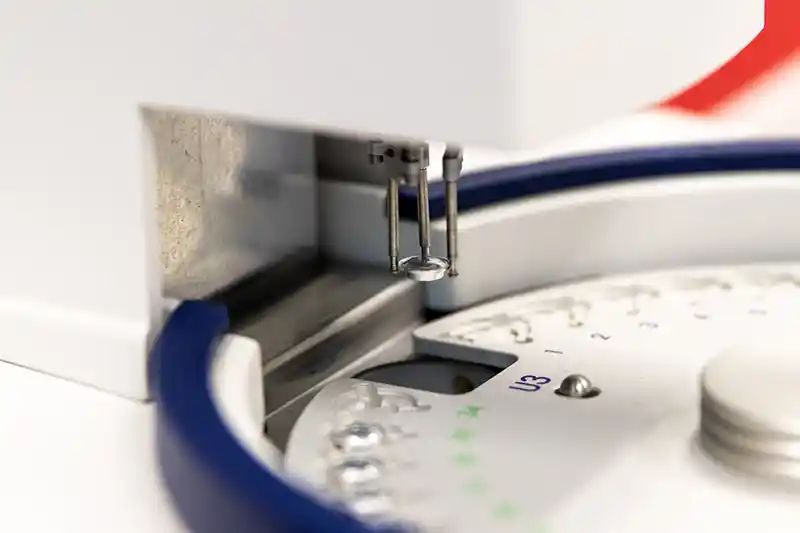Differential Scanning Calorimetry Testing
Differential scanning calorimetry testing is employed to quantify the crystalline content of polymers or materials. When materials exhibit crystalline content, they undergo phase transitions from solid to liquid and back again The fully relaxed annealed melting point of a material is a distinctive and replicable property that serves as a valuable reference.
At Flex-Pack Engineering, we utilize differential scanning calorimetry testing in conjunction with FTIR as a thermal analysis tool to assess the chemical composition of organic materials. Our application of differential scanning calorimetry testing is integral to our analytical and evaluative processes, addressing the following objectives:
- Resolving flexible packaging issues for our customers.
- Conducting competitive analyses to discern the key factors contributing to the success of competitors’ packaging solutions.
- Offering reverse engineering services for flexible packaging products.
- Engaging in product and process development for flexible packaging solutions.
Differential scanning calorimetry testing is a very useful tool in the analysis of flexible packaging materials and projects.
Applications of Differential Scanning Calorimetry Testing
Differential scanning calorimetry testing is used in a wide variety of applications, including:
- The characterization of polymers: differential scanning calorimetry testing can be used to determine the glass transition temperature (Tg), Heat Capacity (Cp), crystallization temperature (Tc), and melting temperature (Tm) of polymers. These properties can be used to compare different polymers and to understand the behavior of polymers under different conditions.
- The study of chemical reactions: differential scanning calorimetry testing can be used to study the kinetics of chemical reactions. The rate of a reaction can be determined from the slope of the heat flow curve.
- The quality control of materials: differential scanning calorimetry testing can be used to determine the purity of materials and to identify contaminants.
Advantages of Differential Scanning Calorimetry Testing
Differential scanning calorimetry testing is a versatile and powerful technique that has many advantages and can be used in conjunction with other thermal analysis techniques such as Thermo Mechanical Analysis, (TMA) and Dynamic Mechanical Analysis (DMA). Some of the advantages of differential scanning calorimetry testing:
- It provides a direct measurement of heat flow, ensuring that it remains unaffected by alterations in the sample’s heat capacity.
- It is applicable for the examination of a diverse range of materials and their correlations with various processes.
- It is a sensitive technique that can be used to detect small changes in the sample.
- It is a rapid technique that can be used to obtain results in a short period of time.
Flex-Pack Engineering Provides Fast and Reliable Differential Scanning Calorimetry Testing
At Flex-Pack Engineering, we bring over three decades of expertise to our flexible packaging analysis and evaluation. Differential scanning calorimetry testing is a pivotal tool in our workflow, allowing us to extract the vital information our customers need for enhancing their flexible packaging products.
What sets us apart is our investment in cutting-edge differential scanning calorimetry testing equipment, ensuring dependable results delivered in a timeframe that surpasses industry standards. Every piece of our differential scanning calorimetry testing equipment is meticulously calibrated to NIST traceable standards and undergoes rigorous verification to guarantee its proper functioning before testing commences.
While possessing the requisite knowledge and equipment for precise testing is essential, our customers benefit most from Flex-Pack’s extensive background and experience in the development of flexible packaging products and processes. We go beyond providing mere test results, offering invaluable insights and recommendations for enhancing your flexible packaging design and production line operations. Our competitive pricing, exceptional turnaround times, and friendly customer service cater to all your flexible packaging needs.
Let’s have a conversation today! Reach out to us at 330-704-9436 or complete our information request form to discover how Flex-Pack Engineering can fulfill your requirements for differential scanning calorimetry testing.


